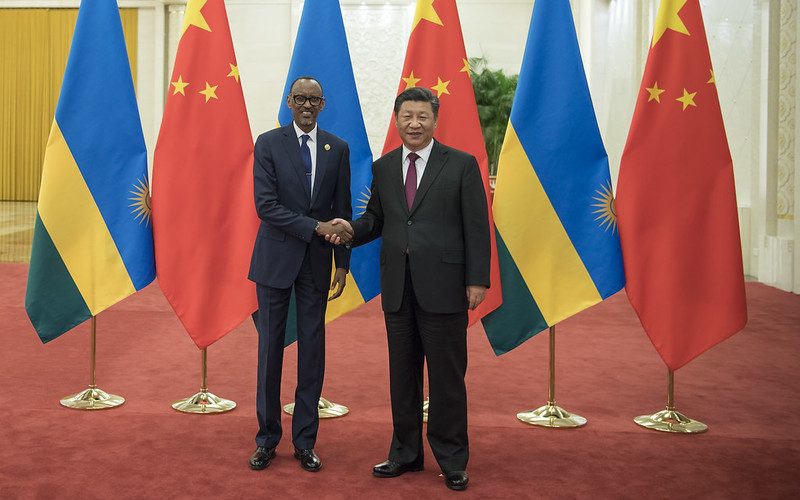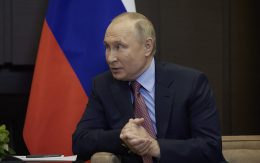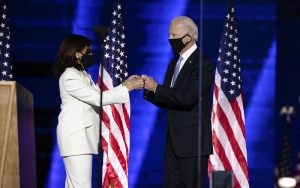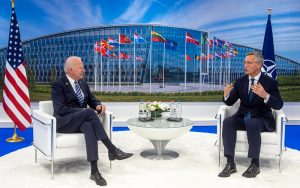Great power competition is dynamic. If we look down memory lane since the start of the 20th Century, ideas of Alfred Thayer Mahan about the need for Naval power to become a world power were present and his ideas presented the geo-political dynamics of the world at that time with Naval strength viewed pivotal in becoming a Global superpower. Geopolitics has transformed with time, the United States was the sole power at the start of the 20th Century, and then World Wars I and II gave rise to a bipolar geopolitical structure of the World.
This bipolar structure continued even during the Cold War from the mid-half until the late 20th century. But ever since the Soviet Union disintegrated in 1989, the U.S. once again enjoyed the status of the sole superpower of the world. Geopolitics was mostly shaped by the U.S.-led decision-making in world affairs. The time from the 1990s onwards was a crucial period because nuclear technology, intercontinental ballistic missiles, space exploration and most importantly globalization, etc. had entered as vital factors affecting geopolitics. The era post-9/11 attacks saw China emerging as a real challenger to the United States’ superpower status. The rampant globalization and significant rise in multipolarity power structures such as European Union (EU), ASEAN, and African Union, have all posed a real threat to the U.S.’ sole superiority. And after the 2008 Western economic recession, China caught up to the US in all domains ranging from trade, military, social development, science and technology, etc.
Against the backdrop of all these historically significant events, Africa as a continent can create a tremendous impact on the global arena. Untapped potential, a booming diverse population, tons of natural resources, and aspirations of many young Africans to do something for their respective nations in the African continent make a crucial role for Africa in future geopolitics and geoeconomics possible. Currently, China is leading the chart with its increased investments, infrastructure projects, the resulting dependence, and trade with African states. It should thus ring a bell to the adversaries of China in the “West” i.e. the United States and European Union and they may feel threatened that their historical European colonies in Africa are rising in the foreseeable future.
Military Bases and Outposts
A number of 13 states have a military base or outpost in Africa scattered across the length and breadth of Africa. Total known bases or outposts are more than forty-five in number. The most geopolitically pivotal region of the Horn of Africa maintains eleven military bases or outposts, due to its strategic proximity to the Suez Canal trade passageway and the lack of peace and instability in several states of the region.
The increased amount of insurgencies and terrorist uprisings have been linked with an increased foreign military presence in Africa. France has the largest contingent rising to 7550 personnel as of the French Defense Ministry figures.
The respective military presence of States in Africa is for protecting their interests, trade, and strategic partners they perceive as “allies” as well as maintaining a strategic presence in future great power endeavors. The United States of America, France, the United Kingdom, Russia, and China hold a fair share of the military presence.
Chinese Investments
China has been a top investor in the African continent since 2010. The frican population reaching nearly 1.5 billion in 2022 makes Africa a lucrative market for China. The prime focus is on developing soft power through trade and investments and a whopping $250 billion trade with the continent underlines Chinese interests in Africa. The world’s top exporter of manufactured goods eyes cooperation with the states in Africa for closer ties. Increased foreign direct investment by China in Africa has symbolized the ever-developing relations.
South Africa, Nigeria, Angola, Egypt, and DR Congo are its top trading partners. Infrastructure and energy projects are underway in Nigeria, Ghana, Sudan, Zambia, Mauritania, and Gabon that are funded by Chinese state-owned and private enterprises. China and its influence in Africa can be witnessed in material but the United States’ presence as an infrastructure developer in Africa is mostly in principle – which makes China the winner with soft power currently in effect in Africa.
China’s only military base in Africa to show off some hard power is in Djibouti and it has no official outpost other than that.
Russian Interests and Use of Soft Power
The Africa Center estimates that Russian exports to the African continent stand at more than $20 billion. The majority of the exported products include grain and arms sales to African states.
However, President Vladimir Putin, attending Russia-Africa Summit in late July 2022, signified the potential of Africa that can be utilized by Russia. Putin’s visit is also symbolic as it comes amid the African States either supporting or abstaining on voting in United Nations General Assembly over Russian aggression on Ukraine earlier this year. The states opting to abstain or not participate in voting on the resolutions condemning the Russian invasion of Ukraine and the Resolution on suspending Russia from the UN Human Rights Council included notable African states such as South Africa, Morocco, Nigeria, Kenya, Senegal, Zimbabwe, Tanzania, Namibia, Madagascar, Sudan, South Sudan, Eritrea and Mozambique.
Egypt initially voted in favor of a resolution condemning the Russian invasion, but in the resolution of removing Russia from the UN Human Rights Council, Egypt abstained from voting which is not a shock as Egypt is heavily reliant on Russian grain and after the signing of a recent $25 billion deal eyeing its first-ever nuclear power plant. The Russian foreign minister, Sergey Lavrov, was also witnessed paying visits to Africa to revive partnerships.
Russian interest in Africa is best explained by the fact that Africa is primarily a big underdeveloped market having a booming population. Hence, it offers a big market to export goods, capitalize on poor energy infrastructure through investments from Russian state-owned entities in the energy sector, extract rare minerals from resource-rich states and protect its trade by maintaining military outposts where deemed necessary. Russian firms have penned deals with Angola, the Democratic Republic of Congo, Namibia, Zimbabwe, and the Central African Republic (CAR) respectively for rare earth minerals extraction. Work on some has already begun.
Russia also operates military bases across the African continent to protect its interest in the region.
Submit here
EU and U.S. Aims in Africa
The United States is focused on spending big – at least in principle. A massive sum of $200 billion is on the cards to counter the Chinese infrastructure developments in Africa under its Belt And Road Initiative (BRI) over the next five years. Apart from the aimed investment the U.S. maintains a strong military presence to protect its strategic interest in the region (with more than 30 known military outposts).
Africa was once the epicenter of colonial rule by European powers in the 19th Century. French, British, Italians, Portuguese and Spanish all enjoyed their fair share of the continent.
However, in the contemporary neocolonial era, the supranational Union of so-called “civilized nations” in the shape of the European Union is focused on cooperation in domains of counter-terrorism, sustainable development, boosting trade with the African Union, and climate-related advancements. A big market of 1.5 billion people makes Africa an attractive investment hub.
“As Africa sets sail on the future, the European Union wants to be Africa’s partner of choice,” said European Commission President Ursula von der Leyen at the EU-Africa Summit in Brussels. “It means remaining an economic partner you can trust, and the European Union is the first trading partner and the first investor in Africa.” The President’s remarks signify Africa as a key interest for the European Union. EU also pledges to invest approximately $170 billion across Africa in the coming years.
US-Europe vs Russia-China Nexus in Emerging Great Power Competition
In the future, the world could be witnessing a Cold War-like rivalry over Africa between the West and the China-Russia strategic alliance. The Chinese investments under the flagship Belt and Road Initiative (BRI) could create an inclusive environment for the rising economies of Africa, and the ever-increasing Russian-African ties could pave way for an indispensable partnership. The partnership would indeed tarnish the power (especially hard power) that the West especially the European colonial powers and the U.S. held in the past.
Disclaimer: The article was previously published in the December 2022 Edition of Global Affairs International Magazine and was republished on Quo Vademus with slight amendments.








Be First to Comment